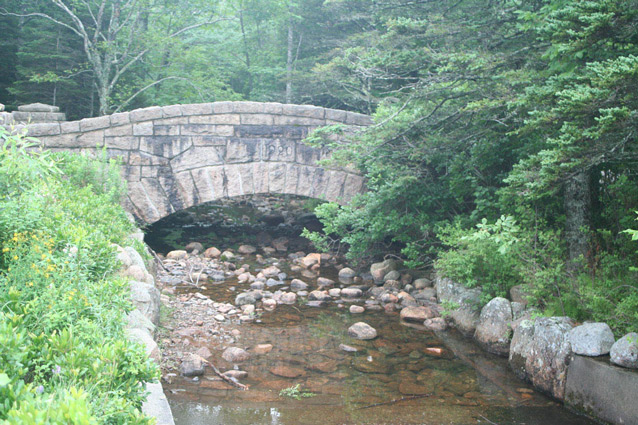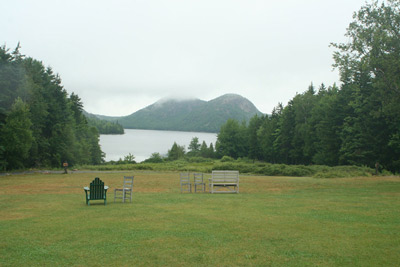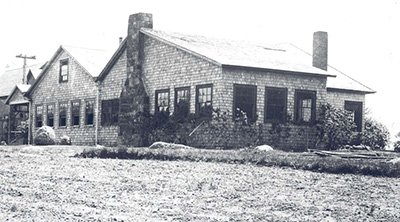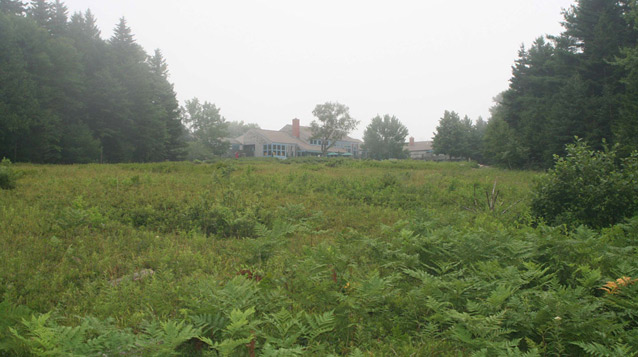The Jordan Pond House landscape has been a scenic, recreational, and dining destination since the early nineteenth century. The building is framed by ornamental plantings, Jordan Pond, and the surrounding mountains of what is now Acadia National Park.
The "lonely and weather beaten little farmhouse" is a place where "one or a score can get a good rural lunch for a small rural price, or a pitcher of milk, or various cold and refreshing beverages...or confectionery for the children." From the Chisolm's Mount Desert Guide, M.F. Sweetser, ca. 1888

NPS
The Jordan Pond House landscape is a 42-acre site situated on the southern end of Jordan Pond, an inland lake bound by Penobscot Mountain, Pemetic Mountain, and two rounded mountains called The Bubbles. The landscape is part of Acadia National Park on the eastern coast of Maine. The Jordan Pond House site has been a scenic, recreational, and dining destination since the early nineteenth century. The current Jordan Pond House, which dates to 1982, is a replacement of the original 1847 house. The landscape is significant in areas of conservation, entertainment and recreation, and landscape architecture.

NPS
Segments of the park’s historic hiking trail, carriage road, and motor road systems provide access to the Jordan Pond House and other features at the site, which include a gatehouse complex, pump houses, dam and spillway, dormitory, parking lots, old buildingfoundations, and several remnant stone-lined trails and roads. A forest of spruce, fir, birch, and maple trees covers much of the site except around the building, which is set in an open lawn that extends down to the pond and is dotted with scattered masses of trees, shrubs, and remnants of an orchard.
In 1839, George and John Jordan acquired the property and ran a sawmill business, harvesting timber from the surrounding hillsides. They eventually built the Jordan Pond House in 1847 and planted a small apple orchard. In 1895, Thomas McIntire took over the business and eventually bought the entire property. McIntire maintained a highly manicured lawn, incorporated a series of flower beds and foundation plantings, and cleared vegetation within the lawn area allowing for uninterrupted views to the Bubbles. In addition, the landscape included vegetable gardens and an orchard.

NPS / Acadia National Park Archives
Today, the Jordan Pond House landscape continues to provide a view of its role as a scenic, recreational destination. Although some of the circulation systems and buildings have changed since the historic period, the area continues to be a hub for hiking trails, carriage roads, and motor road systems in the park, Views from the house and lawn have been maintained to emphasize the natural features of surrounding areas, and it continues to serve as a recreational and dining destination for park visitors.

NPS
Quick Facts
- Cultural Landscape Type: Historic Site
- National Register Significance Level: State
- National Register Significance Criteria: A
- Period of Significance: 1895-1959
Landscape Links
Last updated: January 13, 2026
